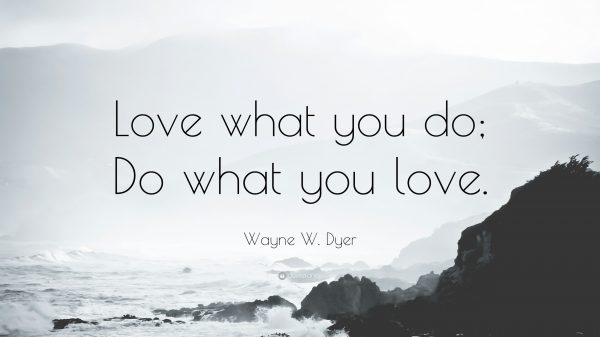
So, you work for a court. It may be a small court with one judge in a rural city. It may be a large court with 60 judges in a major metropolitan city. The work seems to go far beyond the typical 8:00-5:00 business hours. For example, law enforcement arrests offenders with outstanding warrants late at night and needs to verify some of the warrant information. A defendant is trying to bail out of jail in the early morning hours, and the bail information in the court file doesn’t appear to be correct. A jury trial is running late, the jurors go into deliberations at 5:00 PM, and the judge wants to keep everyone in the courtroom to finish the trial, as to not return the next day. These scenarios may sound all too familiar to you and can pop up, throwing off your work-life balance.
All of this may seem manageable given our individual strengths and skills. But how do we keep up with these demands in our professional life while maintaining a happy and prosperous life outside of the office? It’s a challenge, and certainly a struggle that many people go through. Unfortunately, in today’s society, it doesn’t seem to be getting any easier. More and more people seem to want to get more done with less. Technology is being integrated in all aspects, and while the expectation is that technology should speed up work and create efficiencies, that’s not always the case.
What does work-life balance look like to you personally? Work-life balance can mean something different depending on the person you ask. You may ask someone who puts a high value on family what work-life balance looks like to them, and the scale will likely tip that direction. A CEO of a Fortune 500 company may just care that their company is profitable and successful. A friend may want to make sure that they’re both happy with their day job and their families and loved ones are close and happy. Since a better work-life balance can have different interpretations, there’s no one easy answer. But there are certainly some primary tips and thoughts for helping everyone have a better work-life balance.
1. There’s Always Tomorrow.
We’re always trying to meet a deadline. That deadline can be as simple as catching the 7:00 AM bus to make sure we get to work by 8:00 AM or as complicated as making sure that the case management system is launched by next July and stays on budget and on schedule. But there are only 24 hours in a day and 7 days in a week. Let’s start breaking that down.
Most of us are scheduled to work 40 hours in a week. That leaves an entire 128 hours that we’re not working for the rest of the week. Factor in a minimum of 8 hours a night for getting much-deserved and much-needed rest, and we’re down to 72 hours. An average of three meals a day brings us to 51 hours in a week. So, you’ve gotten the essentials out of the way: sleeping, eating, and working. You’ve now found a considerable amount of time to get everything else done. Couldn’t finish that report by 5:00? No worries, there’s always tomorrow. And the day after that!
So many people are pushing their human limits to accomplish an exhaustive list of tasks before they allow themselves to rest their head on a pillow and sleep. And to make matters worse, an increasing number of people are hesitant to ask for help. There is an unfounded perception that asking for assistance makes us weak and inferior. In fact, realizing you need help and following through by asking for it makes us stronger and smarter.
2. Check Your Mirror Often.
It’s easy to look in the mirror in the morning. It’s a standard fixture in a bathroom we almost all use to make sure we don’t cut ourselves while shaving, ensure excess toothpaste isn’t on our face, or evenly apply a healthy dosage of makeup. But how often do you look in the mirror during the day? How often do you see the tiredness and exhaustion that starts to appear when you don’t allow yourself to properly rest? How often do you see that you lack the smile that appears when your child comes and hugs your leg? How about that grin you get when your dog runs your way to express happiness in seeing you?
Those happy moments shouldn’t only happen after work. It’s okay to express some of those same feelings at work. It’s just that many of us just don’t find much during the day that causes us to feel that way. Start looking for the things in life that can make you feel that way—day or night! It’s okay to take pride and ownership of the successful launch of a project. It’s okay to give unsolicited compliments for excellent work, just as it’s also okay to offer assistance to someone who could use it. The feelings may not be the same as when a child hugs you or a puppy licks your face, but gratitude and satisfaction certainly do have a positive effect on the soul.
Remember that you spend at least 40 hours (or 48 percent) of your week and 71 percent of your awake hours with your colleagues at work, so it’s important to find joy and happiness during those hours and build relationships with those you spend so much time with.
3. Unplug and Unwind.
When’s the last time you went to a restaurant and didn’t see at least one person at a table not on their cell phone? When your family is sitting in the living room at night after dinner, how many people are distracted by an electronic device in their hands or in their laps? Better yet, can you go to a meeting at work without spotting one person zoning out by paying attention to text messages on their phone? It’s likely that you’ve experienced some or all of these examples regularly. We’re captivated by these all-in-one or smart devices. They have the capability of doing almost everything we want done instantaneously through the use a single device.
But there are drawbacks. Work productivity is actually slowing down (see Madeline Farber, “Smartphones Are Making You Slack Off at Work,” Fortune, June 6, 2016). “While we need to be connected to devices for work, we’re also a click away from alluring distractions from our personal lives like social media and various other apps,” said Rosemary Haefner, chief human resources officer at CareerBuilder, in a news release. “The connectivity conundrum isn’t necessarily a bad thing, but it needs to be managed. Have an open dialogue with employees about tech distractions. Acknowledge their existence and discuss challenges/solutions to keeping productivity up.” Less is being accomplished because of these distractions. Personal relationships are taking a direct impact from these devices. Family dinners around the table are becoming a thing of the past. The iPad and iPhone are becoming the newest members of the family.

When’s the last time you walked through the office and actually asked your staff how they were doing and how their weekend was? Has it been replaced with an email communication to all your staff thanking them for their hard work and letting them know they can stop by your office if they needed something? Try walking away from the keyboard and giving an in-person handshake. The impact may be more meaningful than you realize.
There’s a great management principle dating way back to the 1970s that is still in practice today called “Management by Walking Around,” or MBWA. Businesses still use this principle today to stay in touch with their leaders and teams, and we would be wise to employ this as leaders in our courts. Here’s an article that provides great ideas on how to make this practice work for you: Anne Fisher, “Management by Walking Around: 6 Tips to Make it Work,” Fortune, August 23, 2012.
4. The Grass Isn’t Always Greener on the Other Side.
Sure, it’s easy to look at highly successful executives and be envious of their positions, their salaries, and their cars. But how do you know what’s on the inside by only looking at the outside? As the old phrase says, “Don’t judge a book by its cover.” It’s a statement that’s been made for years and still holds true. An executive may hold an important and prestigious position, but it doesn’t make them more important than anyone else. Many people go into their career and stay with it because it makes them happy. They find personal joy and satisfaction waking up each morning and going back to what they did the day before because it brings them happiness. A decorative block sits in my office window with the phrase “love what you do; do what you love” on it to remind me daily that if I am not happy and loving what I am doing then I should reevaluate my current job.

“Happy” is the keyword. Sure, the grass may be greener on the other side, but it still needs to be mowed. A good friend of mine told me that back when I was 16, and it’s stuck with me ever since. The same rings true for people working in the public sector. Many public-sector employees work in civic jobs because of the satisfaction they get by giving back to the community. The compensation and office amenities certainly may not be that of a large private corporation like Microsoft or Facebook, but the jobs are fulfilling and make people happy.
5. Do the Downward Dog.
Study after study on human health has shown that exercise clearly has direct positive impact on the body and the mind (see Heidi Godman, “Regular Exercise Changes the Brain to Improve Memory, Thinking Skills,” Harvard Health Blog, November 29, 2016). Indirectly, exercise improves mood and sleep and reduces stress and anxiety. Yoga, for instance, is a great form of exercise that benefits us in many ways.
You can even make simple healthy decisions in your day-to-day job. More doctors and chiropractors are recommending offices purchase adjustable stand-up desks for their employees. This provides people the option of working at their desk while on their feet, having a large and positive impact on the back and spine. Institute office stretch breaks. Place mid-morning and mid-day calendar appointments on calendars reminding and encouraging people to stand up and stretch. Make it a point to walk with some of your staff over the lunch hour weekly. This will not only provide some fresh air and exercise, but it will also provide opportunities for getting to know each other better and team building.
6. Start Small. Go Big.
Change is hard. We all know that. So, it should be no surprise that changing our life habits can be difficult and frustrating. Change can bring along feelings of fear, anxiety and uneasiness (see Stephanie Ballard, “Why Is Change So Hard?” blog, Psychology Today, August 8, 2016). These are the things we want to avoid in life to be happier and healthier people
When it comes down to the bottom line, the most important thing you can do is to take care of yourself. The next time you’re flying on an airplane and the crew is explaining the safety protocols, make sure to take note of when they tell you to secure your air mask before that of a child in the event of an emergency. How do you care for others when you haven’t cared for yourself? How do you support your employees when you don’t feel motivated or happy? How do you get up for work each morning when you’re not happy with your career or your family life?
It’s important to find work-life balance. But it’s a personal journey and a personal decision. You won’t find the answers in a Magic 8 Ball or at a local tarot card reader. You will, though, find yourself closer to the answers by remembering that tomorrow is another day. You will find that there are substantial benefits to unplugging your life for a while. You’ll help yourself by looking forward, not backward, and certainly not by looking at the yard next door. And finally, you’ll be closer to that answer when you take it all one step at a time.
About the Author
Jeffrey Tsunekawa was previously the Judicial Operations Manager for Seattle Municipal Court, overseeing jury operations, courtroom judicial operations and responsibility for both the digital and paper records of the court. Prior to becoming the Judicial Operations Manager, he was the Senior Executive Assistant to the seven elected Judges and six Magistrates for the Seattle Municipal Court. He previously held positions of similar responsibility at King County Superior Court before joining the Seattle Municipal Court.
Mr. Tsunekawa received a Bachelor of Arts in Social Sciences from Washington State University in 2007, and a Master’s of Public Administration from Seattle University in 2016. He is also a 2016 Fellow of the Institute for Court Management.
Mr. Tsunekawa was a member of the Washington State District and Municipal Court Management Association, from 2011 to 2018. In 2016, Mr. Tsunekawa became a Fellow of the Institute of Court Management with the National Center for State Courts. He has been a member of the National Association for Court Management since 2007 and has served on multiple committees, including: Ethics, Communications, Nominations, and Membership. In addition, he is fulfilling a three-year term on the Joint Technology Committee (JTC). He has been a member of the National Notary Association since 2007.


